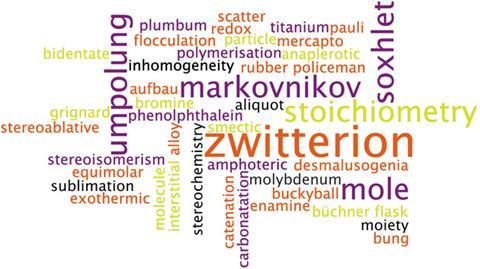Discussions from the magazine, website and social media

Teacher training
In the last issue, David Read reported on a study that revealed a range of weaknesses in trainee science teachers’ knowledge and understanding of chemistry. In ‘New research reveals flaws in specialist teacher training’ David described how non-specialist chemistry teachers hold misconceptions in a range of chemistry concepts, and even specialists show some flawed understanding.
Mona Harris from the Greater New York City area, US, posted her comments in our LinkedIn group::
I have spent the last four years as a teacher mentor. I think one of the biggest problems is our unwillingness to ‘trust’ our GCSE or A-level classes to a trainee. The attitude seems to be, ‘give them the lower year groups, they can’t do much harm there’. I always believed in a broad approach and allowed my trainees to teach classes in all levels. The one consistent thing I found was that even though I have been teaching for nearly 16 years they taught me a lot about the profession as it grows into technology. You are in the room with them, what harm can they really do? Let them try.
On our LinkedIn group, John Oversby from Reading, UK, had this to say:
It really is unfortunate, to say the least, to describe [the research] as showing there are flaws in teacher training. With only 60 days to spend on university-based teacher preparation, and the rest dealing with classes in school, the time for development is extremely limited.
The teacher preparation course is meant to be a start to a career of learning, not turning out a finished teacher […] Additionally, we have to deal with the education world we have, where much teaching out of field is often the case, not the one we would like to have. I strongly support subject-based material in teacher preparation […] and know that there are many problems with teacher subject knowledge, even with specialists teaching their own subject.
Chemistry words
In July, Kristy Turner wrote an article for our blog about her favourite chemistry words. She said: ‘in chemistry we are also blessed with a rich text with words influenced by languages from across the world. Our words are interesting and rhythmic and this can be great fun in teaching.’
Kristy’s favourite word is ‘zwitterion’: many of you told us what yours is and we’ve put them in a word cloud. What’s yours?

Peer-assessment
An article in the July issue described how a school in Renfrewshire, UK, has seen a positive improvement in students’ chemical calculation skills after they implemented a system of simulated peer-assessment.
On our LinkedIn group, Bruce Douglass, a chemistry teacher from Connecticut, US, added his experiences:
Peer review in research has long been a standard and it follows that peer-assessment would be an ideal method to move a student’s knowledge forward. I would think that when I have one student (who is more proficient) help another (who is struggling) or set up groups wherein there is a range of abilities to begin practice sets prior to homework or review homework, then that would be a form of peer review. As a more formal approach presented here I would be concerned with the amount of class time required in addition to the disadvantages noted in the article. Peer grading, which has [repeatedly] come and gone in education has not proved efficient or reliable in my experience.
Examining innovation
Kathryn Roberts has reported on a recent study by the Organisation for Economic Co-operation and Development’s Centre for Educational Research and Innovation, which finds that countries with greater levels of innovation in education see improvements in certain educational outcomes.
Nial Pickering from Liverpool, UK, commented on LinkedIn:
While I agree that innovation and experimentation in education is necessary, as a science teacher in the UK I agree more with the comments of Keith Taber in the report. Increases in science teacher observations have never improved practice and nor have the 10 revisions to the National Curriculum over the past 20–30 years.
As for the idea that there were more student-led investigations and more relevance given to science in students’ lives, this is not the world that I or many of my colleagues across the country are familiar with. ‘If it’s not on the test then don’t waste time on it’ is the usual mantra and I have been told when I requested more time to develop the independent inquiry skills of my students, that I shouldn’t ‘risk the education of the pupils’. Innovation should and must come from the educators, not the civil servants.






No comments yet